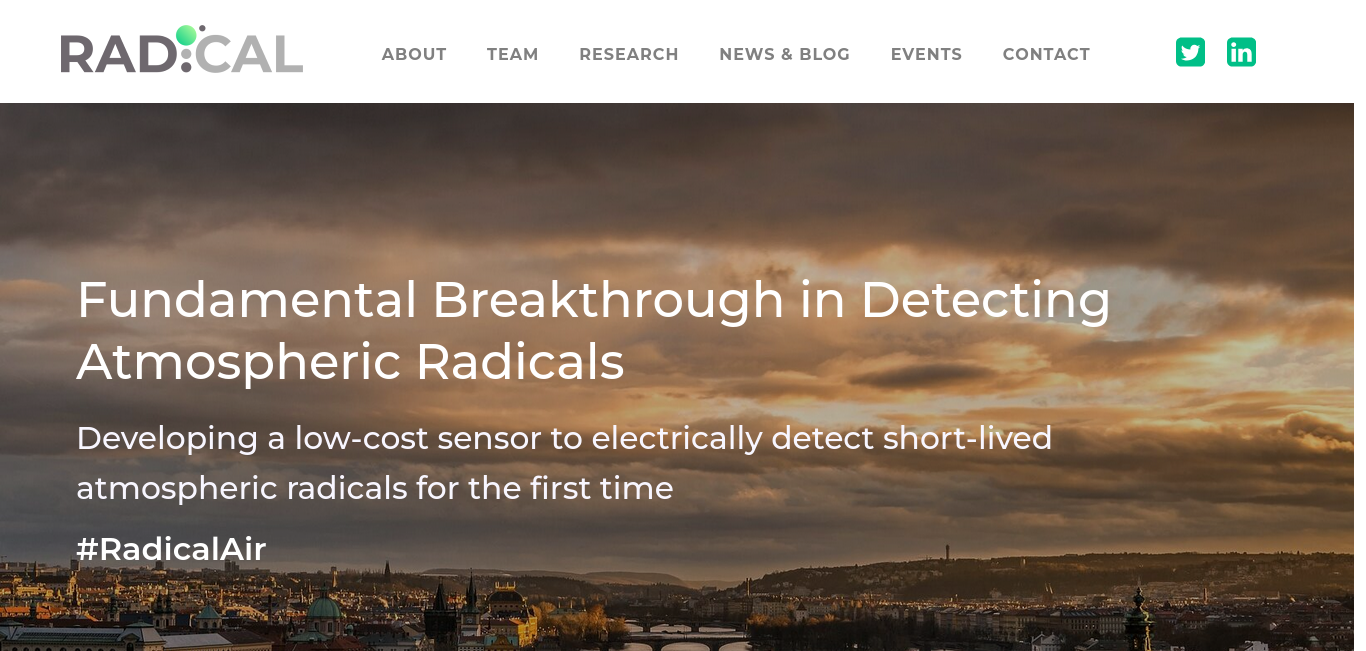Value proposition
EU-funded research project to develop a new low-cost sensor to detect atmospheric radicals for air quality monitoring
RADICAL is an EU-funded research project to develop a brand-new way of detecting atmospheric radicals in real-time.
This will be a small, low-cost electronic sensor that will ‘sniff’ out short-lived radicals such as hydroxyl and nitrate, which play a key intermediary role in day- and night-time air quality.
This has never been done before, but if it works, our new RADICAL sensors will be cheap, small and able to be rolled out on a global scale to help us better monitor and model the role of radicals in air quality and climate change.
The sensors could also be adapted to detect other gases with a wide range of potential applications.
RADICAL is a collaboration between multidisciplinary partners across Europe including University College Cork (Ireland), HZDR (Germany), University of York (United Kingdom), NTUA (Greece), Smartcom (Bulgaria), and UCC Academy (Ireland).
We have extensive expertise across the fields of materials science, computer modelling, nanofabrication and nanoelectronics, as well as organic, radical, and atmospheric chemistry.
RADICAL has received funding from the European Union’s Horizon 2020 Research and Innovation Programme under grant agreement No 899282. It has a total budget of €3.2 million and will run for four years from 1 November 2020.
Website: https://radical-air.eu/
Archived website (permalink): https://web.archive.org/web/20220106095151/https://radical-air.eu/
air quality, materials chemistry, atmospheric chemistry, radical chemistry, low-cost sensors, electronic sensors, gas sensors, atmospheric radicals, and air quality monitoring
HOME - RADICAL
RADICAL. Fundamental breakthrough in detecting atmospheric radicals. Developing a low-cost sensor to electrically detect short-lived atmospheric radicals.
https://web.archive.org/web/20240507163345/https://radical-air.eu/




